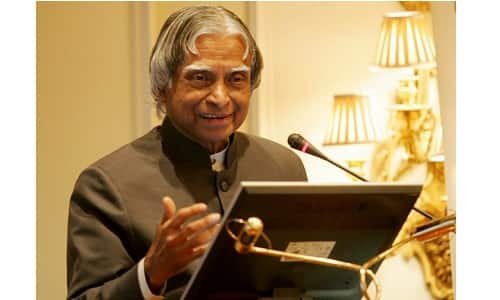There have been endless discussions and analysis already about the reservation system in India. The system, often called or known as positive discrimination, has been debated and argued for decades. On the outset, one may take a very judgmental point of view about the matter, but a deeper inspection can offer several points. The system that was started for the welfare of the marginalized parts of the society has been in practice for decades. The primary aim for this practice was for their development in education, job and political arena. As the system carried both advantages and disadvantages, here we will be talking about both.

Advantages of Reservation System in India
The Indian reserve system has addressed previous wrongs and promoted social equity. This empowerment program has improved education, employment, political representation, and social cohesion for SCs, STs, and OBCs. This article discusses how the reservation system fosters social justice, political representation, educational advancement, economic empowerment, diversity, and social cohesion.
1. Historical Background:
Indian history has been characterized by prejudice, marginalization, and persecution of SCs, STs, and OBCs. Prejudice affects education, employment, and politics. Given these inequities, the reservation system was designed to offer equal opportunities and correct past wrongs.
2. Promotion of Social Justice and Equality:
Reservation promotes social justice and equality, its fundamental advantage. The system offers SCs, STs, and OBCs a certain number of seats and jobs, allowing them equal access to previously unreachable opportunities. These communities have advanced in education, employment, and politics.
3. Representation in Politics:
Reservation policies greatly increase political representation for underrepresented groups. SCs and STs serve in national and state legislatures. This affirmative action ensures these communities’ voices are heard in key decisions. Political diversity and inclusivity improve decision-making by being thorough and empathetic.
4. Educational Upliftment:
Reservation policies have greatly improved schooling for poor communities. Reserved school seats offer kids hope. Socioeconomic constraints prevented them from taking further education and professional courses. Education breaks the cycle of poverty and advances society.
5. Economic Empowerment:
Economic empowerment is another reserve benefit. Public sector employment reservations have offered impoverished populations stable work. Financial stability boosts living standards, healthcare, education, and life quality. Economic empowerment boosts individuals and the economy.
6. Diversity and Social Cohesion:
Indian society is more diverse and integrated due to reservation laws. These rules allow varied groups to interact, shattering caste prejudices. Peace and fairness need inclusion and variation in all spheres of life. The reservation system has united society.
Indian reserve has corrected past wrongs and promoted equity. Benefits include political representation, educational development, economic empowerment, and a more diverse and cohesive community. Reservations enable minority groups survive despite their limitations. Recognizing and using these advantages would make India more equitable and inclusive.
Disadvantages of Reservation System
Indian reservations gave historically disadvantaged groups social justice and equality. The system faces criticism and challenges like others. This article examines reservation system issues such reverse discrimination, creamy layer, quality-quantity trade-off, community splits, and reserve politics.
1. Reverse Discrimination:
Reservations are sometimes criticized for reverse discrimination. Reserved quotas arbitrarily exclude talented individuals from diverse groups from education and employment, say critics. Societal animosity and discontent abound. Reservations aim to heal historically disadvantaged communities but may unfairly exclude good individuals.
2. Creamy Layer Issue:
The “creamy layer” notion involves wealthy protected group members who profited from reserve. Critics say reserve payments should only go to the poorest since the creamy layer benefits, causing inequality. Solve the creamy layer problem to get reservations to people who need them.
3. Quality vs. Quantity:
The reservation system may value quantity above quality in education and job. Lowering reserved category eligibility limits may allow less-qualified people to work, lowering sector competence. Policymakers strive to balance quantity and quality.
4. Division Among Communities:
Reservations may aggravate community differences, despite their intended purpose of promoting social fairness. Social stability is endangered by caste fighting over reserved seats. Communities may be divided by reservations.
5. Politicization of Reservation:
Reservation regulations have helped politicians win votes. Politicization may lead to poor execution and a concentration on short-term benefits above disadvantaged groups’ long-term prosperity. Reservations should prioritize social justice above politics.
6. Ideas for fixing problems:
Though flawed, the reservation system has helped the needy. Policymakers may benefit from these suggestions:
7. Needs-Based Reservation
Need-based reservation should include income and caste. This may assure reservations support the poor while fixing the creamy layer.
8. Worthy Approach
Apply merit-based selection in restricted areas to guarantee applicants and personnel satisfy academic or professional criteria. It maintains education and labor quality.
9. Sensitization Programs
Community awareness fosters peace. Discuss and cooperate instead of arguing.
10. Depoliticization
Establish separate policymaking and execution entities to depoliticize reserves. This may improve impartiality and lifetime.
11. Periodic Review
Review reservation rules regularly to examine and alter them. This allows the system adapt to society. Indian reserve promotes social fairness and equality, but it must improve. Reverse discrimination, the creamy layer issue, quality vs. quantity, community divides, and reserve politicization, all these need serious remedies. Need-based reservation, merit-based approach, sensitization, depoliticization, and periodic reviews may help policymakers create a fairer, more effective reservation system that serves people.
The Contradictions
There are ample complications in this multifaceted policy of the reservation policy. Properly following the pros and cons of the policy is essential. It is true that this policy has been successful in dealing with the issues of inequality and historical injustice. But on the other hand, high criticism has also come forth due to the process of reverse discrimination or the creamy layer problem. These issues are equally problematic just as its advantages. It is important to keep in mind that we are all progressing towards an equitable society. So it is essential to put the already running policies under review and reform them as and when needed. The relevancy and usefulness of these policies are of the need of the hour. It is true that keeping a proper balance between maintaining merit based selection and providing proper options to the marginalized people is a very tricky task. But such reviews are essential when it comes to maintaining a proper social progress.
Conclusion
Lastly, we can all agree on the fast that the main purpose of the reservation policy if to offer proper options to the disadvantaged society. However, it is essential to keep an eye over the execution of the policy, otherwise, it can turn discriminatory. Then there will stay the success of the process.

Rahul Kumar is a passionate educator, writer, and subject matter expert in the field of education and professional development. As an author on CoursesXpert, Rahul Kumar’s articles cover a wide range of topics, from various courses, educational and career guidance.



